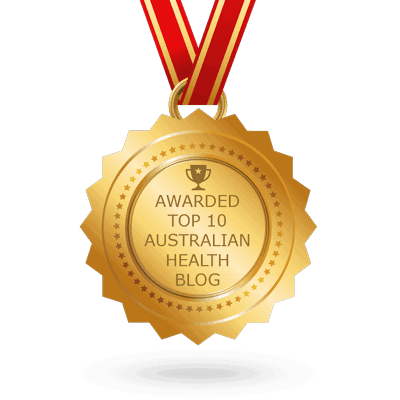Did it ever cross your mind that your gut might play a role in your mental health? I’m unsure if it surprises you, but I was surprised and intrigued when I first heard of this.
This concept first came to me a couple of years back when I watched a health documentary on Netflix (I’m sorry, I don’t remember the documentary’s title. I must admit that I watched an unhealthy amount of documentaries).
I was so intrigued by the topic of gut flora and how it affects human health. So, I decided to regurgitate what I had learned from reading medical journals and watching documentaries in this short post.
Before we move on, let’s lay out the necessary disclaimer.
Disclaimer: This article is for informational purposes only and is not a substitute for professional medical advice. Always seek the advice of your physician or other qualified health provider with any questions regarding a medical condition or the use of probiotics for your health.
Now that it is out of the way, let’s find out what exactly is the gut-brain connection (also known as the gut-brain axis scientifically).
Understanding the Gut-Brain Axis
The gut-brain axis (GBA) is a complex communication system linking the gut and brain, facilitating a constant exchange of information that impacts digestion, mood, and overall health.
This communication occurs through several pathways, including:
- Vagus nerve allows signals to be sent back and forth between the gut and the brain.
- Neurotransmitters produced in the gut affect brain function and mood.
- Immune system may cause increased inflammation levels when the gut health is affected.
Researchers have discovered that the gut-brain axis is bidirectional, meaning messages flow both ways. It means that just as stress can disrupt digestion, poor gut health can affect how we feel emotionally.
When there’s an imbalance in gut bacteria (a condition known as dysbiosis may occur), it can impact mental health, contributing to issues like anxiety or depression. Similarly, stress or worry can affect digestion, leading to symptoms like bloating or stomach pain.
Researchers have found in recent years that improving gut health with probiotics, fibre-rich foods, and stress reduction may help restore balance and support a healthy gut-brain axis.
Diet’s Role in Supporting the Gut-Brain Connection
The foods we eat can impact the health of our gut microbiome and, by extension, our brain. Fibre-rich foods like fruits, vegetables, and whole grains serve as “prebiotics,” which feed the good bacteria in the gut.
Fermented foods such as yogurt, kimchi, and sauerkraut contain probiotics, which introduce beneficial bacteria into the gut. Consuming a diverse diet with plenty of fibre and probiotics supports a healthy microbiome, benefiting both physical and mental health.
Researchers like Berding et al. concluded in their 2021 study that “missing microbes do not necessarily have to be supplied by probiotic supplements, but could be consumed through food products containing beneficial bacteria, such as fermented foods”.
Confused about the differences between prebiotics and probiotics? Read prebiotics vs probiotics explained in simple terms.

Probiotics and Mental Health
Probiotics are live bacteria that can help restore balance in the gut microbiome, potentially improving mood and reducing stress. Certain strains of probiotics, sometimes referred to as “psychobiotics,” have shown promise in positively influencing mental health.
Studies suggest that probiotics may help reduce symptoms of anxiety and depression by regulating inflammation and improving neurotransmitter production.
However, while evidence is promising, more research is needed to fully understand which strains are most effective and how they work.
Lifestyle Factors that Impact the Gut-Brain Axis
Aside from diet, lifestyle factors like stress, sleep, and exercise can influence the gut-brain connection.
In a 2019 scientific journal of Gut Microbes, researchers Dalton et al. concluded that “aerobic exercise has been shown to impact the gut by increasing microbiome diversity and functional metabolism in both humans and mice”.
Chronic stress can disrupt the gut microbiome, while regular physical activity has been shown to increase microbial diversity, which is linked to better mental health.
Adequate sleep is essential as well, as it helps regulate both gut and brain health. Together, these factors can strengthen or weaken the gut-brain axis, depending on whether they are well-managed or neglected.
What Are My Thoughts?
I’m hopeful that future research on the gut-brain connection will bring even more valuable insights into how we can improve both physical and mental health.
As we learn more about the impact of gut health on overall wellness, I believe there’s an opportunity to educate people on the importance of nutrition. With greater awareness, people can make informed choices that benefit their microbiome and, ultimately, their mental well-being.
Policymakers and communities could also work together to make diverse, gut-friendly foods accessible to everyone. This change would ensure that people from all backgrounds can support their health through diet.
In addition to nutrition, encouraging more movement and reducing stress is essential in maintaining a healthy gut-brain connection.
- Who Should (and Shouldn’t) Take Probiotics? - 16 November 2024
- How to Choose the Right Probiotic - 16 November 2024
- Prebiotics vs Probiotics: The Dynamic Duo of Gut Health - 16 November 2024
